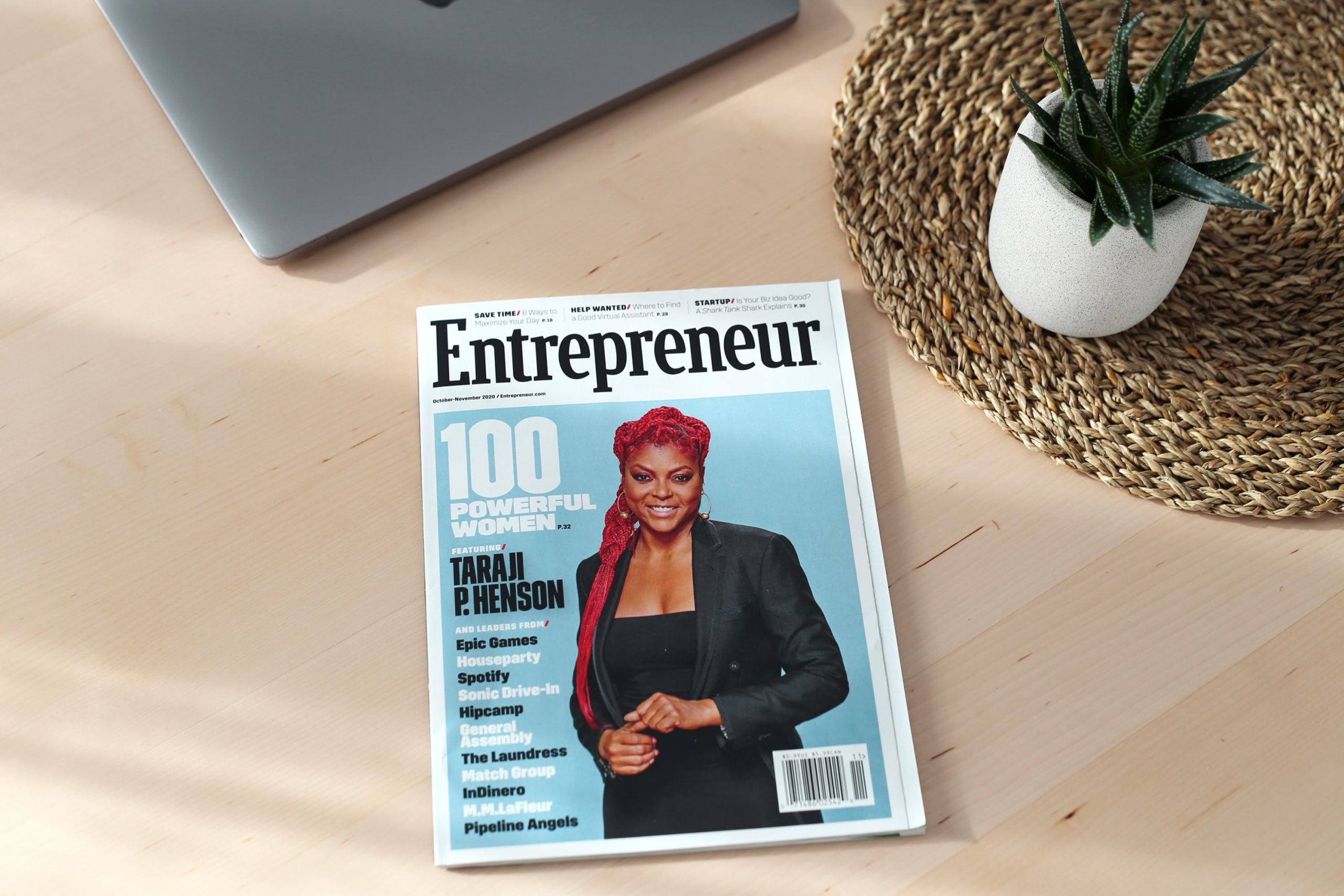Tips For Midlifers To Succeed When Interviewed By Millennials
08.07.2021
Audio version
For your convenience here is the audio version of this article. Press Play to listen.
7.5 tips on being interviewed by millennials

Old enough to have dated your parent.
You’re entering a brave new world. If you’re changing job roles during midlife, it’s now likely you’re going to be interviewed by someone from a younger generation.
You can picture it now. You stroll into the interview room, dressed in what you assumed would be the most casual millennial outfit you can think of – a power suit without a tie or a blouse with dress pants. You’ve found every way you can to show that you understand technology, know the latest pop culture references, and are exactly like them.
Your interviewer shows up wearing a hoodie. She reels off a few prepared questions from an iPad screen, then prompts you to ask questions back. Nothing you say gets written down. Your frustration mounts. Soon, she invites her colleague into the room – no, sorry, into her f*cking iPad – to ask you more questions. You don’t even know where to look.
The whole experience feels like an interrogation from Blade Runner.
If you’ve got preconceptions about what a millennial interviewer is looking for, you will likely be resentful both during and after the interview process. And, most importantly, you won’t get the job. The worst thing is, it’s not even the millennial’s fault – it was yours, for going into that room with a preconceived notion of who they were.
Don’t panic!
Team Vippi will walk you through how to abandon your prejudices and ace that interview.
1) The power of being yourself
It might feel like your boss is just a baby – but they know what they’re doing and potentially hold the keys to your future.
You have to start seeing yourself less like a candidate and more like a brandidate. Millennials carry their personal brand around with them at all times – it’s on their Twitters, the way they dress, and how they build and publish music playlists on music sites. Branding is everywhere.
You have to learn about cultivating your personal brand before you even apply for the job. It’s a rule of navigating the modern workplace. You’re making the mistake of treating that interview as an interview. It’s not. It’s essentially an investor pitch for the one-person startup that is You, Inc.
Authenticity is important to millennials (and easily accessible if you have the right values), but the impression of authenticity is carefully cultivated. And in an interview, you have a very short space of time to give that impression.
You can leapfrog these demands by being yourself – but a version of yourself that has upskilled in a way that appeals to millennial employers in the same way you might get a transformative new haircut before a date.
Here’s how to convey your personality in the most authentic way:
- Don’t try to speak or look cooler than you are. Jeff Goldblum, for example, dresses like a million bucks but talks like an absolute goofball. Millennials worship at his altar. They’re not looking for someone who walks into the offices and immediately flosses or dabs (if you don’t know, you don’t need to know, but ask your kids).
- Know your values before you walk in the room. Avoid just saying what you think the interviewer wants to hear. Say what you truly believe and represent. If you need to take a little time to work out what that is before the interview, that’s only going to benefit you.
- Don’t speak too freely and loosely, but be more conversational than you’re used to being in interviews with fellow Gen X-ers. This isn’t a chat in a bar. But it doesn’t have to be far off – they should be able to envision you slotting squarely into the company’s social culture.
- Know in your heart that you have decades of experience without bragging about it. In dating scenarios, a truly confident person isn’t the one bragging about how many people they’ve slept with, but the individual quietly making everyone feel better about themselves while knowing they’re a catch. The same applies to a professional context. Talk about how you can help in an authoritative, informed way, not what you’ve done. The key takeaway here is communicating how you can help them as opposed to what you have accomplished.
- Work out what makes you different, and put those characteristics to use. You can’t hide them under pretending to know the most up-to-date Twitter hashtags.
How to build a personal brand
Wait, backtrack. You’re just a person with skills and a work history. How can you turn that into a brand?
Well, your personal brand is in everything you do already. The way you dress, walk, and chat to people is a key part of it. It’s simply the way you come across to the world. And in a world where everything about you is Google-able, it helps to gain some control over that both on- and off-line.
How do you make your personal brand resonate?
- Stay on target. You’re a muti-faceted person, no doubt. But if you’re applying for work, you want to target your communications to appeal to your target audience. Have a niche, and then occupy a special corner of that niche. For example, if you’re a software engineer, specialize in a particular coding language. Then, tailor your communications around your specialties as a coder. Being a specialist in something will help your brand enormously.
- Be you. Don’t suck up to people and pretend to have values or priorities just because you think they’ll go down better. Millennials will decode any posing in seconds.
- What is your story – and how are you telling it? All brands have a journey and a story. What’s your story as an employee? Why are you doing what you do? How did you decide on your niche? Are there amusing or heartwarming elements to your narrative? Have you overcome challenges or pitfalls to get there? Communicate your story on your social media and in your interviews.
- Stay consistent. This will come with being genuine. But you have to make sure you have a unique and consistent voice in your emails, on your social media, and in your conversations. If you say what you mean and talk about what you know, you won’t deviate far from this. But if you’re preaching world peace on your LinkedIn and waging war on Twitter strangers, your brand will be transparently fake.
- Push yourself out of your comfort zone – and be ready to fail doing so. You’re going to have to make some brave decisions when speaking in your brand voice. Adding pizzazz and personality to emails immediately risks being the ‘wrong’ personality for a particular role or company culture. But if you’re being authentic, the great news is that this is simply companies filtering themselves out for you. Communicating in an honest way yields honest results, and getting pushed back a few times due to an authentic personal brand means that you haven’t failed to succeed – you’ve succeeded at failing.
- Be a builder. Construct your brand around helping others – build bridges, don’t burn them. The only thing we really take from role to role is the experience, our reputation, and that sh*tty mug we got as a leaving gift. And you can do this with any skill set. If you’re a plumber, for example, learn to make and upload free YouTube videos giving instructions how to fix a variety of plumbing mishaps. The next time you’re in a meeting with a millennial, pull one of them up. You’ve got the job, and you’ve probably fixed their sink as well.
- Don’t just brand your life – live your brand. Taking what you’re about and monetizing it is not the goal here. Think about it; you’re targeting your approach, specializing in something, and being honest. Taking that back into your life and really being all about it can be so powerful. The momentum from doing that will yield results in both your professional and personal lives.
- Personal branding is what people say about you when you’re not there. You could land a job solely because you’re the “awesome person who walked into the job agency wearing a dog-themed shirt” and exuded charisma. Think about the impression you want to leave, and give them something to talk about.
2) Avoid dwelling on company loyalty.
Millennials like to see forward motion and progression. They want to know that you’ll be hungry to prove yourself and get results rather than being content in a single role. Job-hopping is no longer a cardinal sin. They want to see that you can diversify and come up with new ideas.
Millennials also place a huge emphasis on teamwork and diversity. Before you go into the interview, think about how you added to your previous company’s culture and how you’d do so for the interviewer and their colleagues.
How can you prove your adaptation skills? Sideways movements and innovations are often the bread and butter of a millennial professional’s mindset. Show what you have inspired or created that demonstrates your flexibility and nimbleness in different business cases.
3) Get to know their social media.
So you’ve built a personal brand after reading point 1 (good on you). But the company interviewing you has a brand too, and they’ve spent a huge chunk of money and time cultivating it. Nowhere will this be more apparent than on their social media channels.
Looking at a company’s social media page before a job interview is like working out how a magician does their tricks before they step onstage. Social media will convey their brand identity, recent achievements, fun tidbits from around the office (including, almost uniformly, the office dog), and news from around the business.
It’s an ever-updating list of subjects the company wants to talk about. So learn about them, and then talk about them when given the opportunity.
4) Write about what you know and put yourself out there.
Treat social media as a publishing platform. Write articles and posts about industry knowledge and become respected as a subject matter expert on your LinkedIn, Twitter, and Facebook pages. You could:
- Join Facebook groups and offer free advice to their members.
- Update a regular blog on LinkedIn about developments in your industry and tips on getting through it. (Make sure you interact with people in the comments.)
- Upload instructional videos onto YouTube talking about and teaching your craft.
This is all part of building a personal brand but also gives you something to talk about in the interview. Being active with your knowledge instead of passive with your experience forces you to research and stay current. Then, when you’re in an interview with someone you could’ve parented, you won’t sound like a dinosaur.
After the interview, send a thank-you email and cheekily attach a little blog post you put together. They’ll not only see you as an expert, but also note the proactivity in your gesture.
5) Ditch the thousand-dollar suit and silk tie and rethink what “interview style” means.
For a millennial interviewer, appearance is secondary to skill and the content of your conversation is primary. Don’t look like you’re trying to dazzle them with expensive garb – it won’t work. Your interviewer might turn up in jeans and a t-shirt.
Instead, dress in a minimal style, and make subtle gestures toward being cooler than your average Gen Xers. For example, for men, a shirt with a subtle but block color decal on the breast pocket, or a sharp but sedate shirt and pants with eye-catching socks.
Women should avoid wearing a dress covered in super flashy colors, but they’ll make an impact with a blouse and dress pants or a dress that makes them feel super comfortable. Button-downs are also a great option. Again, simple works best.
What to expect from a typical interview with a millennial?
While no two interviewers are the same, modern interviews with up-and-coming companies will generally take the following structure:
- You’ll usually find the job posting on LinkedIn or through a job agency. If you successfully apply, you’ll be shortlisted.
- You’ll then get a call from an HR assistant or maybe even the interviewer themselves. This chat will usually last about 15 minutes, and they’ll ask you why you’re applying, what makes you suitable for the role, and what your expectations would be in terms of salary. They’ll get a scope for how you handle yourself on the phone and either pass on the information or make a decision when the call is over.
- You’ll get called back into a meeting of around an hour where they’ll ask about times you’ve handled particularly hairy situations, innovations you’ve made, and particularly notable wins. They’ll also try to get a sense of your values. Often, they’ll ask you some seemingly random questions to get an idea of your personality. Dress code will often be business casual.
- They are likely to have a separate stage of the interview that involves an aptitude test. This may be an editing test, a fictional priority- or situation-management task, or a presentation on a topic – it depends on the industry. They’ll be assessing you not only for how well you pull off the test, but how far beyond the topic you think. What are the possible next stages of this task’s life cycle? Think about how you can springboard from this task into other ways you could help build the company if you are hired.
- You might get called back for a final conversation with a senior executive, and possibly even the CEO if the operation is small.
In short, interviews with a millennial don’t evaluate what you’ve done – they assess who you are and how you do things.
6) You get to set benchmarks too.
Many millennials leading companies are doing so for a startup. This means that some may expect you to start on a slightly lower salary than you’re used to in order to facilitate a bigger payoff further down the line.
This may take the form of stock options or the appeal of getting in on the ground floor with a view to progressing quickly through the ranks.
While millennials may be used to this line of thinking, this is not so for Gen X, who are more accustomed to stability, progression, and attractive base salaries that they stay in for decades at a time.
Know what you want before you walk in there. An interview is also about the company selling themselves to you – it may genuinely not be what you’re after. Come to an understanding.
7) It’s not about time spent.
Your advanced years in your industry are no longer the boon you would think.
Instead, it’s about having upskilled, staying current with moving markets and technologies, and proving the impact you’ve had in particular situations that have yielded exceptional, measurable results.
A good format to work with is STAR:
- Situation: Think of a particularly demanding situation that called for your unique skills. Was a customer talking about suing? Were you on the verge of losing a multi-million-dollar client? Was the whole system infrastructure about to collapse? This is how you build your story. Everything was on fire.
- Task: What did the situation demand of you? What fix was needed? Were you asked to step up or did you volunteer? It was clear I was going to have to run inside the burning building to save the puppy.
- Action: This is your Stallone moment. How did you rectify the situation? What skills did it involve? How long did it take? I climbed in through the bathroom window and carried the puppies out in my arms (there were actually three). It took 3 seconds and everyone survived.
- Result: What were both the short- and long-term outcomes of your actions? How did it benefit your previous/current employer? Would you do anything differently the next time something like this happens? What did you learn? I adopted all of the puppies and helped clean up the rubble with my bare hands. I learned that fire is hot and puppies are cute.
You’ll be pleased to know that traditional interview prep still applies. Look into the company’s story, its achievements, the people interviewing you, and what the role will involve.
You also need to think about whether your skills are current and how well you’ve kept up with your industry. “Being proficient at Microsoft Office” simply isn’t enough anymore. Ask yourself:
- What efforts have you taken in the last 5 years to get on board with new technologies and modes of communication. Make sure you’re up to speed with task management apps like Asana and Trello, as well as cloud platforms like Google Docs and Microsoft OneDrive?
- Where do you source news and current events in your industry? It might be time to subscribe to some relevant news outlets and gauge where the industry’s currently at. Maybe even volunteer as a contributor for these news platforms and pitch articles. If you’re not a writer, you can always commission a freelancer to write a piece with the information and enter it under your name. Your future employability would justify the investment.
Referencing how you’ve stayed informed will help your millennial interviewer maintain confidence that you can keep up. An age difference is completely irrelevant if both of your minds are curious and sharp.
7.5) Value yourself – but don’t overprice yourself based on your years of experience alone.
Ah, money. It’ll enter the arena of conversation eventually, and it can be tempting to say “well, I’ve been in the industry 20 years” and then price yourself out of a job.
If you’ve got stone-cold examples of times you’ve single-handedly brought in millions of dollars of revenue or spearheaded revolutionary projects, you might not be unreasonable in asking for a high salary based on your experience. Likewise if you’ve been headhunted. “You came to me – this is what I’m after if you want me to leave my current employer.”
But your millennial interviewer could just as easily turn around and ask why you’ve stayed in the same role for so long, or what you’ve actually achieved in your 20-year career. You have to justify your price in terms of what you’ll bring to them, not how much time you’ve spent growing mold by the water cooler.
Frame your long-lived experience as a valuable asset; a decision-making tool that helps you simplify complex situations at great speed. “I’ve been doing this for years” doesn’t really mean anything. What will you do in tangible terms for your employer and their bottom line?
Roundup
Interviews can be intimidating. Any potential job offers the chance for security and progression, so when your fate is in the hands of someone half your age, you may lean on incorrect preconceptions.
An interview by a millennial is simply an interview by a human being – just one who has entered the professional world at a time when personality profiles and first impressions are being meticulously curated online.
All an interview by a millennial means is that you won’t be able to wing it on your years served. You have to show real, unfiltered passion for your field, specialist skills, and complete ownership of your personality.
That means you have to throw yourself into upskilling and develop true self-belief – as well as finding ways to show it. And we know you have it in you!
Article resources
Cherches, T. (n.d.). 5 things Boomers need to think about when being interviewed by a millennial. https://thehiredguns.com/when-the-tables-are-turned-5-things-boomers-and-gen-xers-need-to-think-about-when-being-interviewed-by-a-millennial/
Zimmerman, K. (2017). https://www.forbes.com/sites/kaytiezimmerman/2017/02/19/how-to-stand-out-to-a-millennial-hiring-manager/?sh=62a706a873ef


























